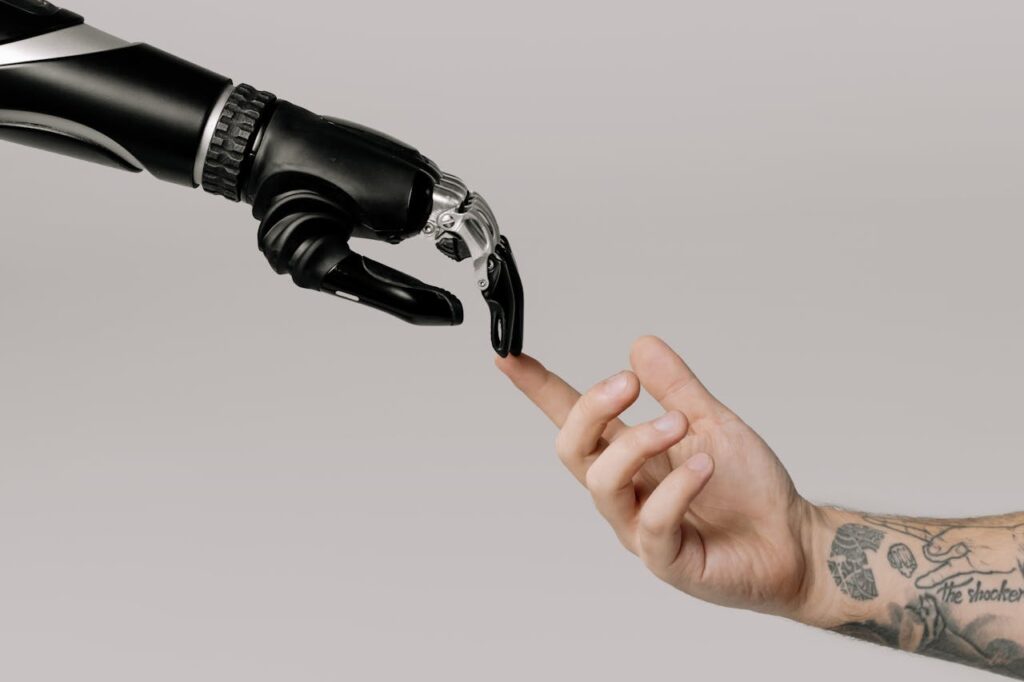
AI in healthcare is revolutionizing the medical field by improving diagnosis, treatment, and patient care. It offers faster decision-making and precise solutions for healthcare professionals. However, while the benefits are substantial, several challenges come with the rise of AI in healthcare.
Table of Contents
1. The Evolution of AI in Healthcare
The Role of AI in Healthcare Over Time
AI in healthcare started with basic data processing. Today, it handles complex tasks like medical image analysis, drug discovery, and patient data management.
Key Milestones in AI Development
The real growth of AI in healthcare began with advancements in computing. Applications of AI in healthcare are now used in nearly every aspect of medicine, from diagnostics to surgery.
2. Breakthroughs in AI Healthcare
AI in Diagnostics
AI is transforming diagnostics by helping doctors detect diseases early and with greater accuracy. Tools that analyze X-rays and MRIs are improving the speed and reliability of diagnosis. Several AI in healthcare companies are focused on enhancing diagnostic systems.
Robotic Surgeries
AI-powered robots assist in surgeries with precision. These robots enable smaller incisions, leading to quicker recovery times. The benefits of AI in healthcare are evident, especially in surgical procedures, where precision is critical.
AI and Personalized Medicine
AI uses patient data to offer personalized treatment plans. By analyzing genetic and medical history, AI ensures that treatments are tailored to each patient’s unique needs. This marks a significant step toward the future of AI in healthcare.
Virtual Health Assistants
AI-driven virtual assistants help patients monitor chronic conditions, providing medication reminders and symptom tracking. The use of AI in healthcare extends beyond hospitals and empowers patients to manage their health from home.
Predictive Analytics
AI tools can predict which patients are at risk of readmission or complications. Hospitals use these insights to design better care plans. Predictive analytics in healthcare is one of the most promising areas of AI application.
3. Challenges Facing AI in Healthcare
Data Privacy Concerns
AI relies heavily on large datasets, many of which contain sensitive patient information. This raises concerns about data privacy and security. The risks of AI in healthcare include the potential for data breaches.
Bias in AI Algorithms
AI systems can be biased if trained on incomplete data. For example, if an AI system is not trained with diverse data, it may not work equally well for all patients. The disadvantages of AI in healthcare are most evident when bias affects outcomes.
Integration Issues
AI tools often struggle to integrate with existing hospital systems, which may use outdated technology. These integration problems can limit the economic impact of AI in healthcare as hospitals may face costly upgrades.
Lack of Transparency
AI models are often difficult to understand, leading to a “black box” problem. Doctors and patients may not fully understand how decisions are made by AI, which presents a challenge in trust. Explainable AI is key to overcoming this issue.
Regulatory Hurdles
Approval for AI-based tools is subject to strict regulations. Although these rules ensure safety, they can slow down innovation. The pros and cons of AI in healthcare depend on the ability to balance innovation with regulatory requirements.
4. Future Prospects: What’s Next for AI in Healthcare?
Ongoing Research and Development
Research in AI for genomics, patient monitoring, and drug discovery is advancing rapidly. The future of AI in healthcare will likely involve greater automation, with AI managing more tasks in hospitals and clinics.
AI in Telemedicine
AI is expected to play a significant role in telemedicine, making remote healthcare more effective. AI-driven telemedicine tools will help doctors offer virtual care and help patients monitor their health without visiting a clinic.
AI-Powered Hospitals
In the coming years, hospitals may become fully AI-driven, where AI systems manage everything from patient admissions to treatment. This could represent the ultimate shift toward a technology-led future of AI in healthcare.
Empowering Patients with AI Tools
AI is empowering patients by offering tools for real-time health tracking and monitoring. Patients will have more control over their health, with AI providing personalized recommendations and insights.
5. Conclusion
AI in healthcare is shaping the future of medicine. It improves diagnosis, helps doctors perform surgeries with greater precision, and creates personalized treatments for patients. However, there are challenges like privacy concerns, bias, and regulatory hurdles that need to be addressed.
Despite these challenges, the use of AI in healthcare is rapidly expanding. As AI continues to evolve, it will create a more personalized and efficient healthcare system, ultimately improving patient care and outcomes.
FAQs
How is AI used in healthcare?
AI is used for diagnosing diseases, analyzing medical images, assisting in surgeries, and creating personalized treatments. It helps doctors make faster, more accurate decisions.
What is the future of healthcare with AI?
The future of healthcare with AI includes more personalized care, AI-driven hospitals, and virtual assistants that help patients manage their health. AI will automate many aspects of healthcare, improving efficiency and patient outcomes.
How to learn AI in healthcare?
To learn AI in healthcare, consider enrolling in an AI in healthcare course. These courses teach the fundamentals of AI, its applications in healthcare, and how to implement AI tools in real-world scenarios.